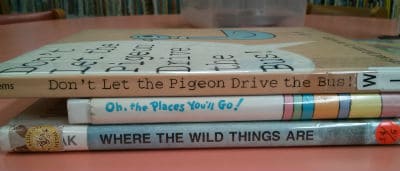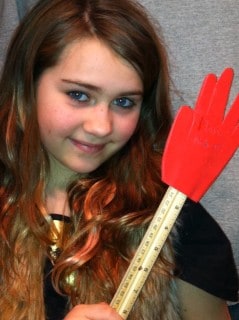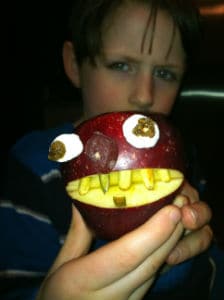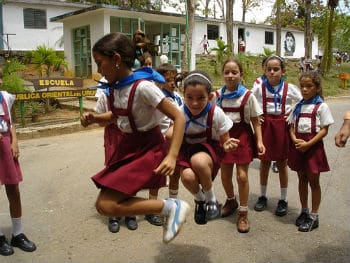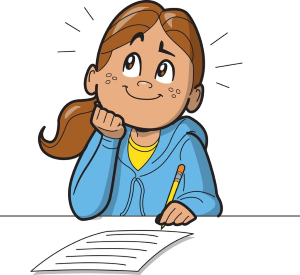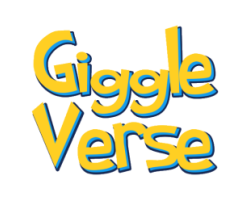
Writers often say that your brain is a bit like a muscle—the more you exercise it, the stronger it gets. It’s good to give yourself some regular mental exercises to help build your creativity over time, so your poetry will keep developing and improving. (The good news is that brain exercises don’t make you ache as much as push-ups!)
A great exercise that doesn’t need any special equipment—and that you can do anywhere at any time—is to describe the color of the sky.
Sounds really simple, right?!
Well, it can be simple to begin with, but the reason this exercise works so well is because your descriptions can become more and more elaborate as your creative muscles get stronger. The idea is to make sure every description is different!

